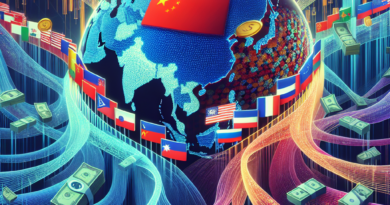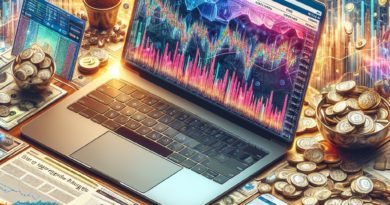Investing in commodities is betting against human ingenuity. But you should do it anyway
There has been talk for months about the exhausting fight against inflation by central banks.
And it must be said that compared to 2022, the inflationary prospects for 2024-2025 are much softer.
However, it is not the task of central banks to completely eliminate inflation: every economy must have some upward pressure on prices because it is physiological and inherent in economic activity, a bit like when our body carries out physical activity in gym and the rise in body temperature signals that you are burning calories.
Inflation therefore, if moderate, is benign.
If it is excessive it is malicious, because it is a hidden tax that hits the poorest families.
If it is negative (deflation) it is even more malignant, because it triggers a negative spiral of consumers giving up spending and businesses giving up investments, and is therefore a harbinger of recession or, at worst, pernicious depression.
Therefore, your portfolios must also contain, with a view to diversification, assets that are linked to inflation.
If this is a topic close to your heart, then commodities may be right for you.
Commodities, other than inflation-linked bonds, are one of the very few asset classes that can actually do much for your portfolio if the inflation situation gets out of control for governments and central banks.
Cash, bonds, stocks and even commercial properties, on the other hand, do not like inflation, because the latter burns their value (and in fact you remember what happened in 2022 on the stock and bond markets).
Of the few commodities that consistently offer protection during inflationary periods, gold is one of the winners, and the commodities sector in general is the other winner.
read also Investments, how to take advantage of the strength of the US dollar The problem with commodities is that while they can work well in the right inflationary conditions, in periods of recession or economic stagnation, such as the great global recession of 2008-2009, or the forced recession induced in 2020 by Covid 19, these are absolutely mediocre investments.
This – at least in my opinion – is how the “ratio” for investing in commodities should intuitively be.
Getting in and out of this investment depends on the economic cycle we are going through.
Commodities, therefore, are not investments for all seasons.
Shares are shares of company capital that allow company profits to be shared among shareholders.
At their best, and especially with the advent of AI, companies are engines of human ingenuity and productivity, creating products or services that people want, constantly innovating, and competing with others to ensure they stay ahead of the curve.
times.
Therefore, in the long term, as an asset class, we would expect strong "real" returns from stocks that can surpass inflation itself.
Bonds are loans that the investor makes to businesses or governments.
They will not beat stocks because their contribution to the portfolio is limited to coupons or capital gains during sharp drops in interest rates, so their upside is limited.
Once again, overall, one would expect to defeat inflation with bonds, and especially with inflation-linked bonds, at least in the long run.
Commodities, however, represent the other side of the equity gamble.
The whole point of economic progress is to do more with less, that is, to increase output with fewer resources, because the most important thing is always increasing productivity.
If a resource is valuable, we find ways to produce and use it more efficiently, so we can continue to use more of it, or we find cheaper substitutes.
read also It's not too late to invest in Gold.
I'll tell you how (and why) One way or another, this limits the rise or fall in the price of the commodity over time, assuming we are successful in the process of increasing productivity.
In fact, the fundamental factors of a nation's growth are always and only two: ease of access to credit, technological innovation and the resulting increase in productivity.
Both stocks and bonds are bets (one riskier than the other) on human ingenuity, while if you bet solely on the increase in raw material prices over time, placing 100% of your portfolio in raw materials, you're basically betting against human ingenuity.
And that's not good, especially in the age of ChatGPT.
The fact is that life in the financial markets is not that simple.
There is always a lot of volatility.
Even if you expect (or at least hope) for NVIDIA's long-term stock price chart to go up and to the right, along the way you will sooner or later get a “strange” bear market that you weren't expecting.
And it was the same for raw materials.
From about 1994 to 2011, notes a BofA Global Research report, commodities enjoyed a bull market (sometimes called a “supercycle”), in which resources as a group – metals, soft commodities such as agricultural commodities, gold, oil, etc.
– have produced returns of approximately 9.8% on average per year.
From 2012 to 2023, however, the increases were limited to an average of 1.9% per year.
According to some analysts, however, several favorable factors are now emerging for the commodities sector in general and they believe that the medium-term future could be different for raw materials compared to that of the last 15 years.
The Federal Reserve is looking to cut interest rates, although many expect a "soft" landing for the economy.
So if the scenario is that of a soft landing, recession is avoided.
If a recession is avoided, the global production cycle could recover as companies replenish inventories, as they expect demand to continue in the months ahead.
Meanwhile, the aging of the population (and therefore a situation of progressively fewer people in the active workforce) and higher levels of public debt (generated mostly due to Covid-era economic support measures) suggest a more inflationary scenario for the broader economy than central banks' statutory 2% target.
Some economists argue that underlying inflation will no longer be that famous 2% mentioned above but will tend, globally and in the long term, towards the 3.5%-4% corridor, even if it will continue to be well tolerated.
I don't really agree with this thesis, which is based on the future scarcity of the raw material which leads to a higher average price over time.
And I disagree because the scale of AI-induced technological innovation will be so devastating and so fast in spreading throughout economies around the world that the increase in productivity will be more than proportional to the increase in the scarcity of raw materials.
And this will always allow supply to meet growing demand, without lasting inflationary shocks.
In other words, I think that even if raw materials become more scarce, industries, thanks to AI, will know how to consume less of them.
But I could be wrong.
This context in turn introduces a reflexive element, in the sense that investors may seek to allocate more resources to commodities than in the past.
read also If you have these shares, absolutely do not sell them.
I'll explain why.
So, if this is really the case, if we are about to enter a long economic cycle in which inflation adjusts towards average annual rates higher than the long-term rates that have occurred up to now, how could you invest to gain exposure to the inflationary trend? There are many ETFs on commodities, but avoiding sector ones, I recommend those that track one of the most used commodity indices in the world, the Bloomberg Commodity Index (BCOM).
The index is based on the economic relevance of raw materials.
In addition to diversification, it also considers liquidity to decide the weight of each component.
Currently, the index tracks 23 commodities across the energy, precious metals, industrial metals, livestock and agriculture segments.
Here are 2 of the largest ETFs by assets under management: Invesco Bloomberg Commodity ISIN: IE00BD6FTQ80 Ticker: CMOD Fund size: €2.2bn iShares Diversified Commodity ISIN: IE00BDFL4P12 Ticker: SXRS Fund size: €1.3bn




